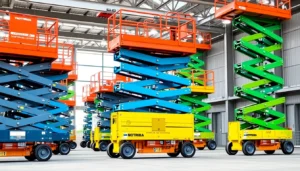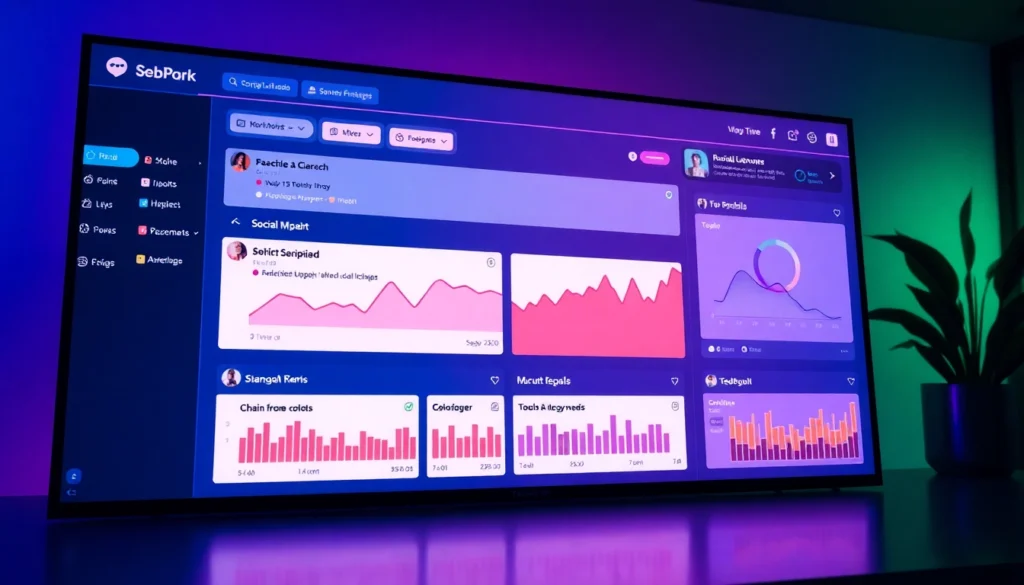Understanding the Benefits of Dumper Rental for Construction
In modern construction and civil engineering projects, efficiency, safety, and cost management are essential factors influencing project success. Among the key equipment employed to achieve these objectives are dumpers—versatile, heavy-duty machines designed for moving, loading, and dumping various materials. Whether handling soil, gravel, debris, or aggregate, dumpers are indispensable assets on construction sites of all sizes. For contractors and project managers considering equipment rentals, understanding the myriad benefits of Dumper rental can significantly enhance operational efficiency and cost-effectiveness. This comprehensive guide explores the multifaceted advantages of dumper rental, guiding you through selecting appropriate equipment, operational best practices, and strategic planning to maximize your investment.
Cost-Effective Equipment Solutions
One of the primary motivations for opting to rent dumpers is the significant cost savings they provide. Purchasing heavy machinery involves substantial capital expenditure, ongoing maintenance costs, storage, and insurance. In contrast, rental arrangements allow construction firms to access high-quality equipment without the burdens of ownership. Rental providers often include maintenance and support, ensuring machines are in optimal condition without additional expenses. This approach translates to predictable expenditures and improved cash flow management. Moreover, with a broad range of dumper types available for rent—from micro dumpers suitable for tight spaces to large articulated models—contractors can select equipment precisely aligned with project demands, avoiding underutilization or over-investment. Exploring options such as mini, midi, and large dumpers allows projects to minimize waste and optimize resource allocation.
Enhanced Productivity with Reliable Machinery
The core benefit of utilizing rental dumpers is the enhancement in productivity on-site. Reliable, well-maintained machinery ensures that material transport is swift, efficient, and consistent, reducing delays caused by equipment malfunction or breakdowns. High-quality rental dumpers, sourced from reputable providers, incorporate the latest technology and safety features, elevating operational efficiency. For example, models with high tipping capacities, quick-loading features, and advanced drivetrains enable faster cycles, thereby increasing overall throughput. Additionally, rental companies often provide timely support, quick replacements, and technical assistance, ensuring minimal downtime. As a result, rental dumpers can significantly accelerate project timelines, curtail labor costs, and enable projects to adhere to strict deadlines.
Variety of Dumper Types to Match Project Needs
The diversity in dumper types available for rental caters to the wide-ranging requirements of construction projects. Here, a brief overview of common dumper categories can clarify their ideal applications:
- Mini Dumpers: Compact and lightweight, ideal for tight urban sites or confined spaces. Their maneuverability and lower ground impact make them suitable for indoor or narrow outdoor environments.
- Micro Dumpers: Even smaller than mini dumpers, these are perfect for indoor applications, pathways, or sensitive surfaces, capable of negotiating narrow gaps and tight corners.
- Skid Steer Dumpers: Featuring excellent mobility and versatility, these are suitable for various terrains and can be fitted with different attachments for added functions.
- High Tipping and Articulated Dumpers: Designed for large-scale projects, they offer high capacity, durability, and efficient loading/unloading, making them ideal for bulk material handling.
- Tracked Dumpers: Equipped with caterpillar tracks for enhanced traction on soft or uneven ground, applicable in challenging terrains such as wetlands or excavated sites.
The strategic selection of dumper type ensures project-specific efficiency, cost savings, and safety improvements, making rental a flexible, tailored solution for diverse construction environments.
Choosing the Right Dumper for Your Project
Assessing Load Capacity and Size
Determining the appropriate load capacity of a dumper is fundamental. Consider the typical material volume and weight your project demands. For small-scale renovations or landscaping, a mini dumper (0.25 to 1 ton capacity) suffices, whereas larger infrastructure projects often require dumpers with capacities exceeding 3 tons. Accurate assessment prevents overloading, ensures safety compliance, and optimizes operational efficiency. Additionally, site constraints such as narrow doorways, access roads, and terrain conditions influence size considerations—compact models facilitate maneuverability in restricted spaces.
Features to Consider: Tipping, Mobility, and Fuel Type
Beyond size and capacity, key features influence dumper suitability:
- Tipping Mechanism: Forward tip, swivel skip, or high-tip options influence unloading speed and material handling. High-tip dumpers are preferable for unloading into elevated containers.
- Mobility: 4WD, articulated joints, and caster configurations affect movement agility, especially on uneven terrain.
- Fuel Type: Diesel-powered dumpers dominate construction sites for their power and endurance. However, electric or petrol variants may be suitable for indoor or environmentally sensitive areas to reduce emissions.
Comparing Rental Providers and Equipment Quality
Choosing a reputable rental provider is crucial. Quality assurance involves checking maintenance records, equipment certifications, and customer reviews. Major rental companies provide newer models with safety features, regular servicing, and technical support. Comparing hire terms, prices, and included services ensures value-driven decisions. Additionally, comprehensive insurance policies protect against damages or accidents, safeguarding your project budget.
Best Practices for Dumper Operation and Safety
Proper Training and Handling Procedures
Safety begins with operator training. All personnel should be adequately trained in dumper controls, loading procedures, and safety protocols. This reduces the likelihood of accidents, rollovers, and material spills. Operators must understand weight limits, proper loading techniques, and ensure stability during transit and dumping. Implementing a designated operator certification process enhances safety compliance across projects.
Maintenance and Inspection Tips
Routine checks are essential for optimal dumper performance and safety. Daily inspections should include verifying fluid levels, brake function, hydraulic systems, tires or tracks, and safety devices such as alarms and lights. Regular maintenance according to manufacturer guidance prolongs equipment lifespan, minimizes breakdowns, and maintains safety standards.
Maximizing Efficiency and Minimizing Risks
Operational efficiency can be improved through strategic planning—such as planning load routes in advance, scheduling multiple dumpings, and avoiding peak congestion times. Implement traffic management plans on-site, enforce speed limits, and maintain clear communication among workers. Proper signage, barrier setups, and PPE further ensure safety for all site personnel.
Cost Analysis and Rental Planning
Pricing Structures and Hidden Costs
Rental costs for dumpers vary based on machine size, duration, and rental provider. Common pricing models include daily, weekly, and monthly rates, often with discounts for extended rental periods. It’s vital to clarify inclusion of consumables, maintenance, delivery, and pick-up charges. Beware of hidden costs such as damage deposits, excess fees, or late return penalties, and include these in your budget calculations.
Rental Duration and Flexibility Options
Rental flexibility is a significant factor. Short-term rentals are ideal for small, one-off projects, while long-term agreements benefit ongoing construction activities. Some providers offer turnkey solutions with flexible extension options, ensuring your equipment needs evolve alongside project timelines. Planning your rental duration accurately prevents unnecessary expenses and operational disruptions.
Budgeting for Your Dumper Rental
Effective budgeting involves assessing project scope, equipment selection, and rental terms. Incorporate costs for operator training, fuel, and maintenance into your financial plan. Comparing quotes between suppliers, and factoring in potential downtime or additional charges, helps to develop a realistic budget. Proper planning ensures the project remains financially viable without compromising safety or efficiency.
Case Studies and Application Examples
Successful Construction Projects Using Dumper Rentals
Many construction companies have reported significant benefits from integrating dumper rentals into their workflows. For instance, a residential development project in Manchester reduced site transportation time by 30% after opting for a fleet of mini and micro dumpers. This not only sped up material delivery but also minimized ground disturbance in confined urban areas. In large infrastructure projects like highway expansions, high-capacity articulated dumpers enabled bulk material movement efficiently, controlling costs and preventing delays.
Small-Scale vs. Large-Scale Deployment
Small-scale projects leverage mini and micro dumpers for landscaping, garden construction, or minor renovations, benefiting from their maneuverability and ease of use. Conversely, large-scale construction sites employ substantial dumpers with high tipping capacities, ensuring bulk materials are moved swiftly over vast areas. Both scenarios demonstrate the importance of matching the dumper type to project size, scope, and terrain.
Client Testimonials and Feedback
Clients consistently highlight the flexibility and reliability of rental dumpers. A UK-based civil engineering firm noted that renting equipment allowed their team to adapt quickly to changing project requirements without the burden of ownership. The availability of different dumper sizes and features, coupled with prompt support from rental providers, contributed to seamless operations and enhanced project timelines.






